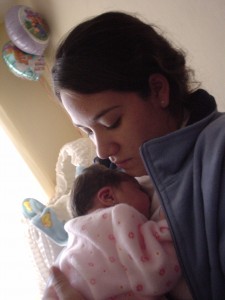T his past weekend I had the opportunity to see the move “Cake”, starring Jennifer Anniston. It portrays the story of a successful lawyer whose life suddenly comes to a screeching halt when a car runs a red light leaving her with life threatening injuries, coping with the loss of her seven year old son. The movie depicts her journey with chronic pain, addiction to pain medications, lost relationships, and failed suicide attempts. Her physical and emotional pain is palpable throughout the movie even as she goes about what appears to be normal daily activities. She is judged, misunderstood, isolated, and afraid – afraid of living the rest of her life in unrelenting pain.
his past weekend I had the opportunity to see the move “Cake”, starring Jennifer Anniston. It portrays the story of a successful lawyer whose life suddenly comes to a screeching halt when a car runs a red light leaving her with life threatening injuries, coping with the loss of her seven year old son. The movie depicts her journey with chronic pain, addiction to pain medications, lost relationships, and failed suicide attempts. Her physical and emotional pain is palpable throughout the movie even as she goes about what appears to be normal daily activities. She is judged, misunderstood, isolated, and afraid – afraid of living the rest of her life in unrelenting pain.
This intense portrayal made me wonder how often those suffering with debilitating pain are misjudged. They are often perceived as lazy. They are not trying hard enough. Maybe they should find a hobby and then they can just forget about it. But they cannot forget about their pain. It is with them day in and out, made worse because they feel isolated and alone.
Chronic pain is defined as any condition that continues to cause symptoms three months beyond the normal healing process. So why does pain persist in some and not in others? Is it really just trapped in the brain someplace?
It is true that our pain centers originate in the brain, and when pain continues for three months or more there is a chance that the “pain switch” in the brain forgets how to turn itself off. Consider if you were to burn your hand on a hot stove. Your hand might blister and need medical attention. But as the blister heals you begin to feel the pain less and your pain switch no longer needs to remain engaged because the threat to the body no longer exists. The switch is turned off and your only memory of the injury might be to use caution next time you use the stove. Now consider you were deliberately pushed into a hot stove and burned your hand. The injury itself may heal, but the pain may persist because of the trauma of having been deliberately hurt. The emotional pain persists in the body much longer than the physical pain. Emotional pain which is associated with a physical illness, accident, or injury can prevent the pain center from returning to a balanced state. Our brain continues to send off painful “alarm” signals to the body as a form of protection from perceived threat.
Those living with illnesses such as fibromyalgia, Lyme disease, or back pain are often told the pain is not real by doctors, family, and friends. These types of responses to a person’s pain can cause intense emotional pain, and in many cases, perpetuate the pain cycle. Chronic pain sufferers may feel depressed, anxious, and hopeless which often intensifies their pain experience. They may go from doctor to doctor looking for relief, or at the very least, find someone who understands their situation. Quite often those struggling with chronic pain experience a sense of relief if they are given a diagnosis because it means someone believes their pain is real.
So how do we break the pain cycle? Does pain relief need to come in the form of a pill, I.V., or injection? Is surgery an option? Or, is there a more holistic, gentle way to treat chronic pain?
Join us February 17, 2015 as we explore skills to mindfully manage chronic pain symptoms.
Meetings will be held every other Tuesday in the Restorative Medicine Center at 245 Barclay Circle, Ste. 600, Rochester Hills, MI 48307. For more details see the events page on this website.




